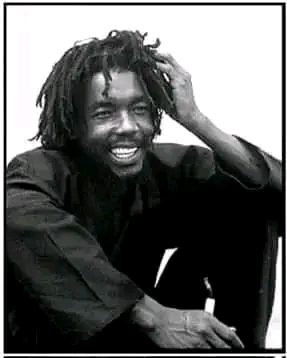Rebel to Legend: How Peter Tosh Lit a Fire the World Couldn’t Extinguis
In the world of reggae music, few names evoke the same level of reverence, rebellion, and raw energy as Peter Tosh. While Bob Marley is often celebrated as the global ambassador of reggae, Tosh stands out as the genre’s unapologetic revolutionary. His life and music were a blazing fire of resistance, demanding justice and equality in a way that remains unmatched to this day.
The Rebel Rises
Born Winston Hubert McIntosh on October 19, 1944, in Westmoreland, Jamaica, Peter Tosh grew up in a tough environment that shaped his fearless spirit. He was a founding member of The Wailers alongside Bob Marley and Bunny Wailer, but his unyielding stance on political and social issues set him apart. Unlike many artists of his time, Tosh didn’t just sing about change—he lived it, using his platform to challenge systems of oppression.
Lighting the Fire with “Equal Rights”
Tosh’s 1977 album, Equal Rights, is a fiery manifesto for justice. Tracks like “Equal Rights” and “Get Up, Stand Up” became anthems for marginalized communities worldwide. Tosh demanded more than peace; he demanded equality. He famously said, “I don’t want peace. I need equal rights and justice!” This unapologetic tone resonated with audiences who felt the sting of oppression.
Fearless Activism
Peter Tosh didn’t just talk the talk; he walked it. One of his most famous moments of rebellion came in 1978 during the One Love Peace Concert in Kingston. While Bob Marley called for unity, Tosh delivered a scathing critique of Jamaica’s political leaders, boldly smoking marijuana on stage as an act of defiance. It was a dangerous move in a volatile political climate, but it cemented his reputation as a fearless advocate for the downtrodden.
A Legacy of Resistance
Tosh’s activism wasn’t limited to his music. He was a staunch advocate for the legalization of marijuana, viewing it as a spiritual and medicinal tool. His song “Legalize It” became a rallying cry for the global cannabis movement, long before it gained mainstream acceptance.
Despite his boldness, Tosh faced severe consequences for his outspokenness. He was arrested, beaten, and targeted by authorities who saw his activism as a threat. But even in the face of adversity, Tosh never wavered.
The Tragic End of a Legend
On September 11, 1987, Peter Tosh’s life was tragically cut short during a robbery at his home. His death was a devastating blow to the reggae community, but his legacy endures. Tosh’s music continues to inspire activists, musicians, and fans worldwide, reminding us that the fight for justice is never over.
Lighting the Way Forward
Peter Tosh’s fire still burns bright in the hearts of those who believe in standing up against injustice. He was more than a musician; he was a movement, a voice for the voiceless, and a beacon for those who refuse to accept the status quo.
As Tosh himself once said, “Everyone is crying out for peace; none is crying out for justice.” His message remains a rallying cry for a world still striving for equality.
Peter Tosh didn’t just light a fire—he became one. And it’s a fire that the world can never extinguish.

